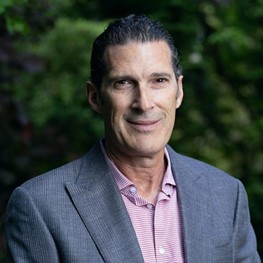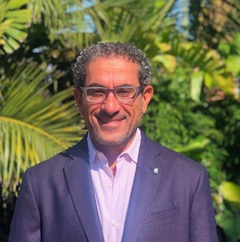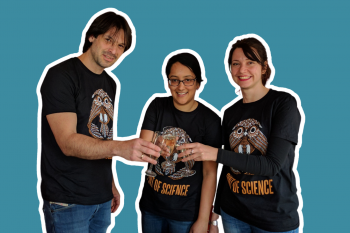© Pint of Science, 2025. All rights reserved.
bit.bio + Pint of Science
Subscribe: Spotify | TuneIn | Stitcher | Apple
We have a special three part mini-series of podcasts in collaboration with bit.bio, the cell-coding company. Find out how bit.bio is developing a scalable technology platform capable of producing consistent batches of every human cell. By harnessing the power of mathematics and transitioning biology to engineering, bit.bio aims to accelerate biomedical research and enable new generations of cures.
Sam hosts the conversations with some of bit.bio’s inspiring leaders, discussing the pioneering work into stem cells, cellular reprogramming, mathematical modelling, and cell therapy.
You can follow bit.bio on twitter @bitbio
Episode 1: CEO and founder Dr Mark Kotter
The series kicks off with Dr Mark Kotter, founder and CEO of bit.bio, the cell coding company. He covers the concept of regenerative medicine and in particular how we might use this approach for neurological conditions and spinal cord injuries – he has a personal interest as he’s a neurosurgeon as well as a CEO and founder. He reveals how bit.bio is working to harness the power of stem cells and turn them into medicines by looking at biology in a different way – like a software.

Dr Mark Kotter
Mark said: “We were able to create a control system that allows us to jumpstart the programs of the cell very effectively. We call this opti-ox™ - it takes full control of the cells identity and has made the process of cell reprogramming very robust and therefore scalable.”
You can find Mark on Twitter @MarkKotter
Interested in precise reprogramming of cells? See the video of bit.bio’s opti-ox™ technology reprogramming stem cells into functional skeletal muscle.
Episode 2: Dr Paul Morrill (CBO - Chief Business Officer)
The series continues with Dr Paul Morrill, who discusses bit.bio’s central core - to develop the underlying technologies capable of producing consistent batches of every cell type in the human body. He explains that the drive is to get the context of the biological system right so that it can be studied within the whole context of how it should be performing, be it healthy or in a disease state.

Dr Paul Morrill
Paul explains: “The day for iPSC cell types is coming. And the value proposition of what they’re going to bring to the industry - both as an avatar for what is happening within the human body, but then equally being able to ask very intelligent questions from those systems - is going to be game changing over the next five years.”
Interested in learning more on how bit.bio apply synthetic biology to generate consistent and scalable stem cell derived human cells for research and drug discovery? Listen to the talk, Coding Cells for Life: Consistent and scalable human iPSC-derived cells for in vitro disease modelling and drug discovery
Episode 3: Dr Ramy Ibrahim (CMO - Chief Medical Officer)
The series wraps up with Dr Ramy Ibrahim, bit.bio’s Chief Medical Officer and a leading immuno-oncologist. Find out about his work at the forefront of this emerging field, helping to develop several breakthrough therapies and also about his alternative career ambition - to be a scuba diving instructor!
Ramy gives an introduction to the field of immuno-oncology and how it evolved with its breakthrough in 2011 when the US FDA approved the first checkpoint inhibitor in melanoma. He explains how bit.bio then caught his attention in the very early days when he was Chief Medical Officer of the Parker Institute for cancer immunotherapy where there was a lot of focus on how to leverage cell therapy, and really turn it into an effective therapy for solid tumours.

Dr Ramy Ibrahim
Ramy says: “What caught my attention about bit.bio is that while most companies are focusing on developing technologies that allow the editing of the cells for therapies, bit.bio focuses on the cell itself. So the bit.bio platform really mastered the control of the pluripotent stem cells, and the ability to direct those stem cells to change into a different cell type. And we can actually control the type of that cell. So I like the idea that they are really focusing on the fundamental piece of cell therapy, which is the cell itself, and the ability to reliably and at a scale, generate those cells.”
Interested in what created renewed attention around the concept that cells can be reprogrammed and was certainly an inspiration for the science that is now the foundation of bit.bio? Then visit bitesize review of the science that enables bit.bio technology to exist.




